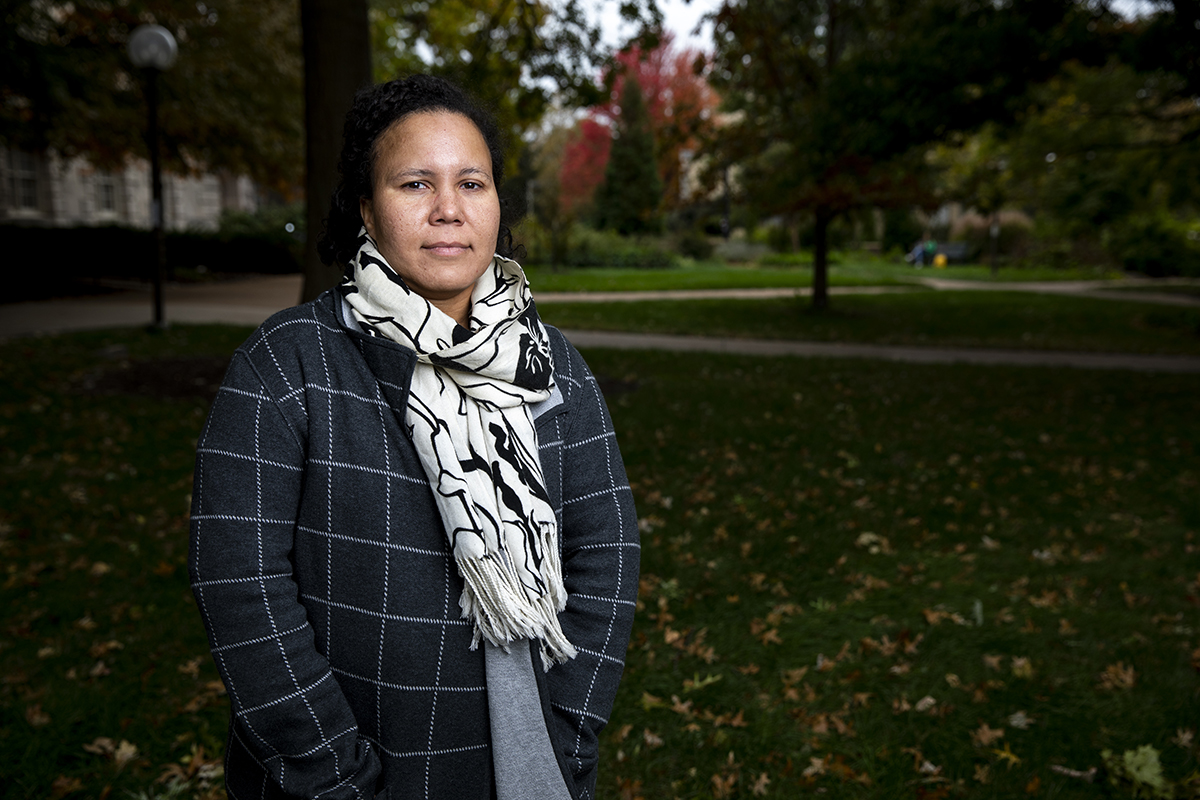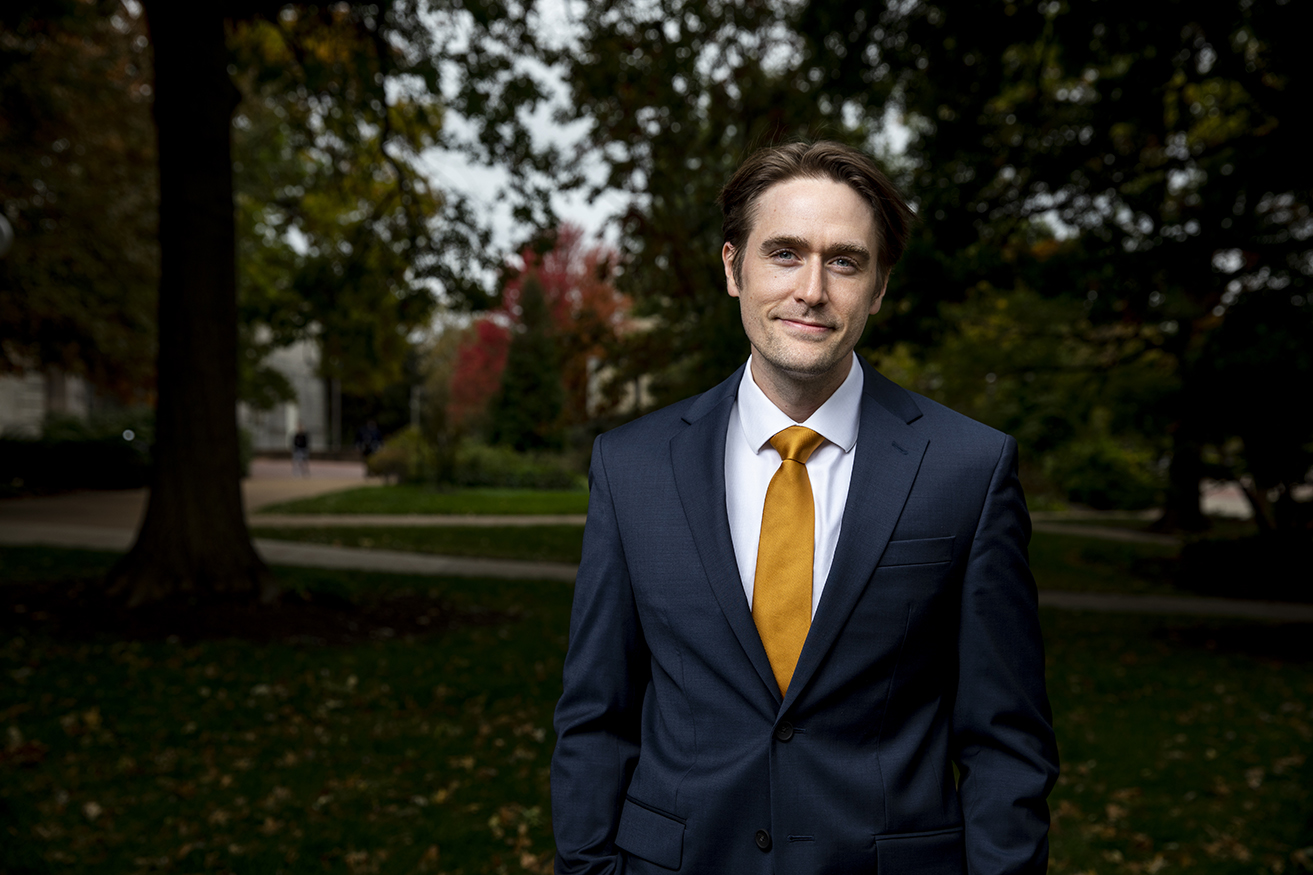Published on Nov. 25, 2019

Lydia Bentley and Jonathan Cisco share more than just a title. As associate directors of the MU Teaching for Learning Center, they have both harnessed hardships to propel their passion for higher education.
Cisco, once told by his middle school math teacher that he wouldn’t graduate high school, drew from early academic challenges to teach difficult content across the disciplines.
“I throw around the word ‘demystify’ a lot,” Cisco says. “I like to delve into the processes behind the content, whether I’m teaching literature, philosophy, poetry, art or statistics. All education requires an empathetic connection. You have to be able to put yourself in the shoes of the learner.”
Bentley, who as a youngster adapted to her ADHD en route to a doctorate in development, learning and diversity at Vanderbilt University, identified with struggling students as a special education teacher.
“I was able to encourage students who might not have received a lot of encouragement in their educational experiences,” Bentley says. “Telling my students, ‘You’re just as capable as anyone else, but you learn differently’ was so important. Many of them had never heard that.”
Those histories — along with impeccable academic credentials, outstanding interpersonal skills and a shared dedication to teaching success — have made them the capable teachers and leaders they are today.

Hailing from Bolivar, Missouri, Cisco’s perspective is also influenced by his international adventures. After completing his undergraduate studies, Cisco left the Show-Me State for the Australian Outback. He then traveled with his now-wife, Jayme, to New Zealand where she finished her degree and he worked in the Maori Division of the Ministry of Health. Cisco later returned to CoMo where he taught at West Junior High School, founded a tutoring company, earned his doctorate and served as assistant director of MU’s Campus Writing Program. He eventually took a faculty position at the University of the West of Scotland.
“My experiences abroad encouraged a kind of cultural humility,” Cisco says. “They’ve made me less reactive and more innately curious, cultivating a kind of ability to hold multiple ideas in mind without reacting to them. This speaks directly to my work as an educator and diplomat.”
Bentley, whose parents are both educators, grew up in the suburbs of Washington, D.C., and earned her undergraduate degree from Georgetown University. As a special education teacher, she taught a range of ages in Fairfax County, Virginia. She finished her master’s degree in education at the University of Virginia before researching underrepresented minority students in STEM education at Vandy.
“I observed the complexity of the challenges and victories that some students experience,” Bentley says. “Because of this, it’s a goal of mine to advance inclusion, diversity and equity in any way I can so that every student — especially those who may be marginalized because of their identity or because they learn differently — can access a high-quality learning experience.”
Alexandra Socarides, chair of the MU English Department and co-chair of the hiring committee, says the pair’s strong backgrounds drove the recommendation to hire two associate directors.
“We all independently came to the conclusion that Jonathan and Lydia had real strengths that would complement each other, but we didn’t know yet if hiring two was possible,” Socarides says. “Then we discussed it as a committee and kept saying, ‘Wouldn’t it be perfect if we could get both of them?’ ”
Tori Mondelli, director of the Teaching for Learning Center, couldn’t agree more.
“Dare I say that we have the bases covered,” Mondelli says. “Dr. Bentley’s educational research area has been in the STEM disciplines, and Dr. Cisco’s area is mixed methods for the scholarship of teaching and learning. Coming from the humanities, myself, I value having perspectives on the center’s leadership team that more fully reflect MU’s comprehensive set of academic offerings.
“These associate directors are uniquely prepared to deepen and expand our offerings to promote reflective, scholarly teaching.”